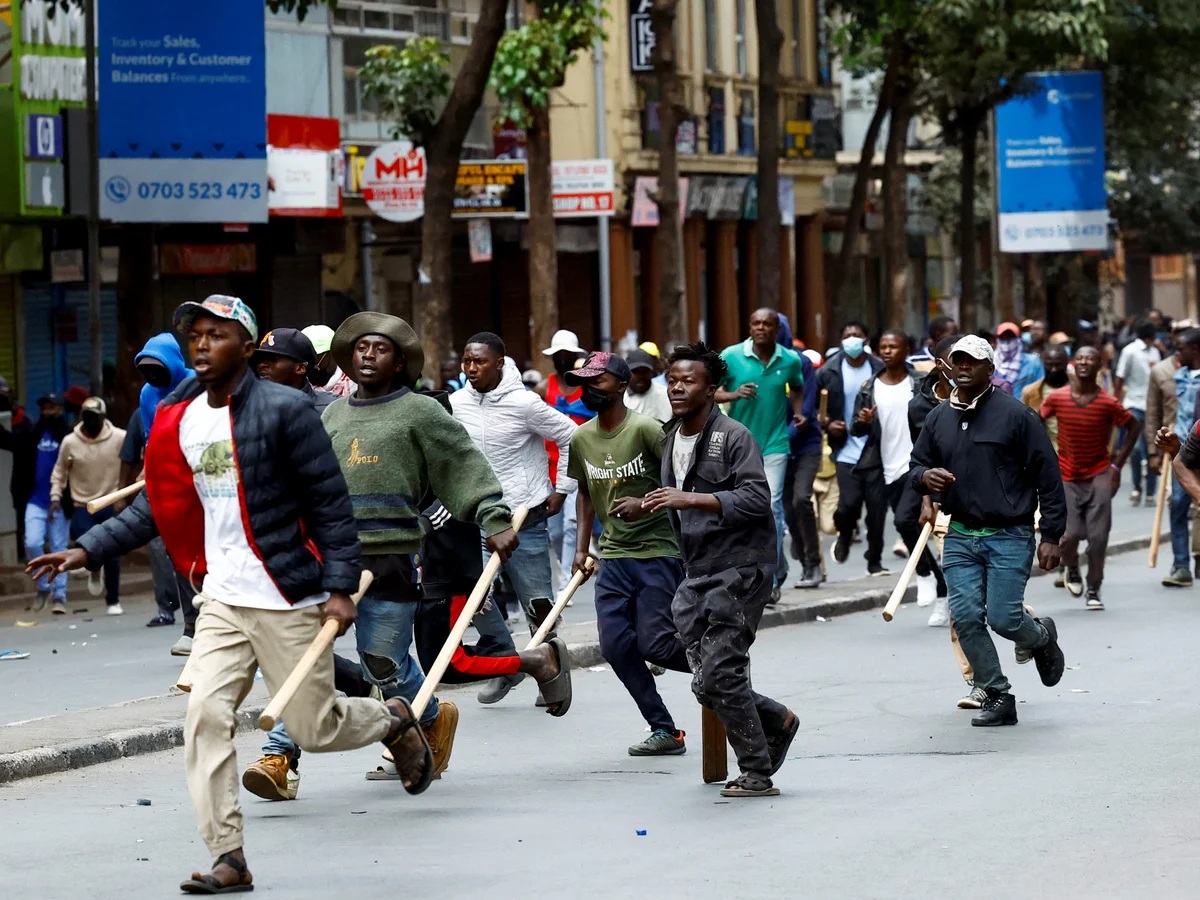On Wednesday, June 25, 2025, Kenyans across the country are set to take to the streets in a symbolic march commemorating the one-year anniversary of a powerful and tragic moment in the nation’s recent history, the storming of Parliament during anti-government protests in 2024.
The planned peaceful demonstrations are intended to honor those who lost their lives or went missing during last year’s unrest.
However, growing concerns are emerging that this year’s events could spiral into chaos.
Organizers include human rights advocates, bereaved families, and young activists, many of whom were central to last year’s demonstrations.
The movement has gained momentum both online and in communities, with calls to treat the day as a “public holiday of the people.”
Despite their peaceful intentions, the Kenyan government has issued stern warnings, cautioning citizens against any actions that could disrupt public order or endanger security.
The protests of 2024 were initially sparked by a proposed finance bill that included major tax increases.
Demonstrations began peacefully on June 18 but were quickly marred by police violence.
In the weeks that followed, over 60 individuals were reported killed, and many others went missing, allegedly targeted for participating.
As frustrations mounted, the focus of the protests expanded to broader demands for systemic reform and even the resignation of President William Ruto.
In response to the escalating public pressure, President Ruto withdrew the controversial bill.
He also reshuffled his cabinet, integrating opposition members in an attempt to establish a more inclusive government.
Although street protests gradually faded by September, allegations of extrajudicial killings, arbitrary arrests, and disappearances have persisted, fueling continued public distrust in authorities.
That distrust was inflamed again this month with the death of a teacher, Albert Ojwang, while in police custody.
He had reportedly posted online criticism of a senior police officer.
His death sparked renewed outrage, especially after police shot a protester, Boniface Kariuki, at point-blank range during another demonstration shortly afterward.
Many of the same grievances that fueled last year’s unrest remain unresolved.
Citizens continue to grapple with high unemployment, widespread corruption, and a rising cost of living.
According to political analyst Mikhail Nyamweya, these issues have eroded public faith in the administration.
“Kenya’s youth especially feel alienated and unheard,” Nyamweya said.
“Despite promises of change, the state continues to meet dissent with force rather than dialogue.”
Wednesday’s mobilization includes physical marches in major towns and cities, as well as social media campaigns under various hashtags.
In Nairobi, demonstrators plan to walk towards Parliament and the President’s office, laying flowers along their route and holding candlelight vigils.
Memorials and vigils were also scheduled for Tuesday night across the country.
However, previous protests have been disrupted by individuals described by activists as “hired goons”, men allegedly deployed to discredit peaceful movements by inciting violence and chaos, including assaulting and robbing demonstrators.
Last week, Nairobi’s police commander George Seda appealed for calm, urging demonstrators to remain nonviolent and respectful of others’ rights.
“Let us confine ourselves to peaceful demonstrations,” he said. “We must avoid infringing on the freedom of others who may not be participating.”
Nevertheless, inflammatory statements from some government-aligned figures have heightened tensions.
David Ndii, chair of President Ruto’s economic advisory council, drew criticism for a provocative social media post suggesting protest participants might suffer casualties.
His message to one user was especially chilling: “Show up—and say your goodbyes before you leave home.”
Despite these threats, calls for solidarity continue to grow.
“We must stand united as brothers and sisters,” activist Hanifa Adan posted on X.
“We need to protect one another, and pray for safety from political manipulation, police brutality, and violence.”
International voices have also weighed in.
In a joint statement, envoys from 12 nations, including the United States and the United Kingdom, emphasized the importance of safeguarding the right to peaceful protest.
They urged both demonstrators and authorities to avoid violence and respect democratic principles.
Kenya’s Catholic bishops echoed those sentiments.
Speaking at a press conference, Archbishop Anthony Muheria of Nyeri condemned the use of force against unarmed citizens.
“A society that silences its youth for speaking out is betraying justice,” he said.
“The state’s duty is to protect its people, not to punish them.”
As Kenya prepares for Wednesday’s commemorative march, the nation stands at a crossroads, between honoring democratic freedoms and descending into another cycle of repression and unrest.







